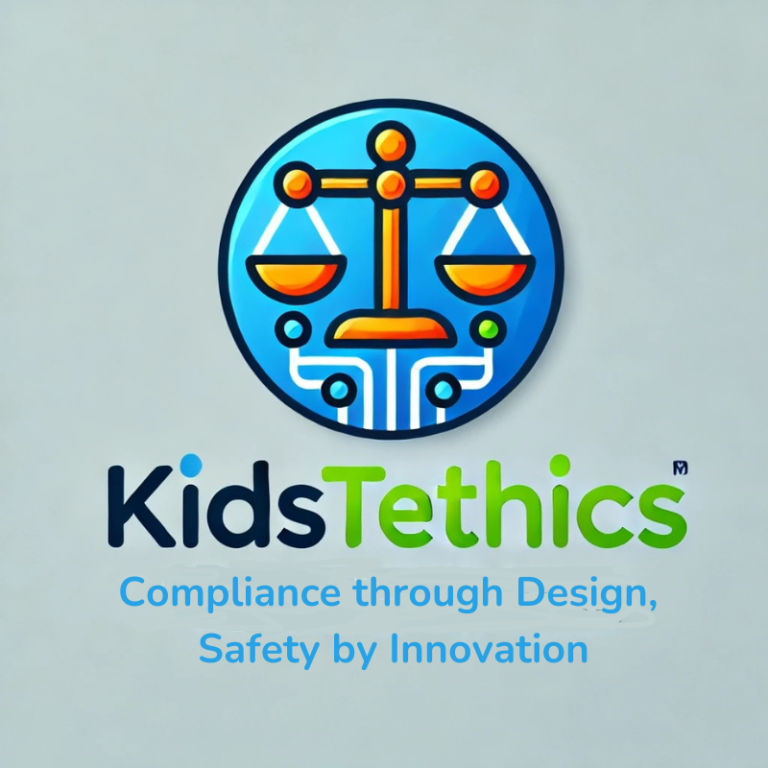At first glance, The Kludge Effect might seem like a collection of seemingly unrelated topics: artificial intelligence, ethical algorithms, autonomous systems, well-being, and sustainable business success. But there’s a deep connection that ties it all together.
The Kludge Effect is my way of approaching complex technological and ethical dilemmas—nodding to the quirks of tech language (and my frequently mispronounced name), while offering holistic, evidence-based solutions for today’s most pressing challenges. It’s not about isolated fixes; it’s about seeing how technology, human needs, and values intersect to create the bigger picture.
As technology reshapes our world, we face critical questions about its role in our lives, particularly in how it impacts children’s safety, our collective happiness, and how we build better, more responsible business practices. I invite you to join me in untangling these thorny, but essential, issues. Together, we’ll explore not just how tech works, but how it can work for us—all with a touch of humor, nuance, and compassion.
Thank you for being part of this journey. I hope you find these reflections both enlightening and thought-provoking.

Sometimes our focus becomes so narrow that we miss the bigger picture. Other times, we step back so far that we lose sight of the important details.
By aligning our intentions with what is truly good, we can develop the awareness to adjust our perspective, allowing us to address both extremes—seeing both the forest and the trees.
This is why I describe it as a holistic approach. I hope you enjoy these posts, and that they bring you clarity in your personal, and or professional journey’s.



The RITEC Framework: Bridging Academic Research and Digital Ethics in Children’s Development
Understanding RITEC’s Foundation and Impact The RITEC framework stands out as a comprehensive and thoughtful body of work that delves deeply into key aspects of children’s development, mental health, and education. By offering a holistic and interdisciplinary view, it provides meaningful insights into how various factors influence children’s well-being, creativity,
How Meta, Snap, and TikTok Enable the Buying of Audiences – And What This Means for Children
In today’s digital world, where billions of users interact with social media platforms like Meta (formerly Facebook), Snap, and TikTok, data is the most valuable currency. This data is harvested and analyzed to serve advertisements that are meticulously tailored to users, based on their demographics, behaviors, interests, and online activity.
Analysis of GPT-4o System Card for Potential Compliance Failures
Analysis of GPT-4o System Card for Potential Compliance Failures: Potential Compliance Failures: Lack of Clear Compliance Framework: The GPT-4o System Card doesn’t explicitly reference any specific compliance standards or frameworks. This makes it difficult to assess compliance against established benchmarks. Limited Scope of External Red Teaming: While the report mentions
The CEO and Board Guide to Safeguarding Your Business: Navigating AI Ethics
Learn How the AI Ethics Committee and Child-Centric DPIA are Used to Mitigate Your Risks. Safeguarding Vulnerable Populations in the Age of AI: A CEO’s Guide to Children. The rise of AI presents exciting promise but also brings perils, especially regarding children. As a C-Suite executive or Board member building
Redefining DPIAs: The Case for Child-Centric Assessments in Building Safer Kids Technology
Child-centric DPIAs are a crucial step to safeguarding children’s privacy online. They identify risks when children may be present; or not. PART: TWO Ensuring the safety and well-being of children has become entangled in a political quagmire. Good news exists as businesses strive to meet this challenge of doing the
Likely to Be Accessed by Children…
The Guide to Building AI, Algorithmic, and Autonomous Systems Intended for, and Not for Children Protecting children’s privacy in the digital realm is a pressing ethical obligation as AI, algorithms, and autonomous systems become increasingly pervasive. I unpack the nuances of assessing whether these systems are likely to be accessed
Navigating Content Moderation and Duty of Care: A Guide for C-Suite Executives and Boards
In today’s digital landscape, where user-generated content (UGC) plays a central role, ensuring a safe and responsible online environment is paramount. With the implementation of regulations like the Digital Services Act (DSA), C-suite executives and board members face new challenges regarding content moderation and the duty of care, particularly concerning
Analyzing “Likely to be Accessed by Children” for Large Language Model (LLM) Training
Likely to Be Accessed by Children Ensuring Ethical Data Practices when Children’s Data Could be Present In the realm of training Large Language Models (LLMs), ensuring ethical data practices is paramount, especially when dealing with potentially sensitive information such as the data of children. As firms scrape the web to
What the C-Suite and Boards should know about Cognitive Bias.
The Role of Ethics Committees – Embracing the Known, Acknowledging the Unknown, and Empowering the Discerning Over 300 identified cognitive biases invisibly shape our decisions, often without conscious awareness. These biases can significantly impact ethical considerations across various domains, from FinTech, MedTech, and technology that engages with children. I explore
Meta’s Auto-Blur Feature in Instagram DMs: A Step Towards Safety or Just Not Good Enough?
A quick take on this Tech-Crunch article. Meta will auto-blur nudity in Instagram DMs in latest teen safety step Meta’s recent announcement regarding the implementation of new safety features on Instagram, particularly aimed at protecting young users from unwanted nudity and sextortion scams, has drawn attention. The tech giant introduced
First Principles Thinking: Questioning Assumptions to Guide Ethical AI
Executive Briefing on Medium SubStack 7 Minute read Unveiling Assumptions in AI Governance: A First Principles Approach In the dynamic realm of artificial intelligence (AI), algorithms, and automated systems, collectively known as AAA Systems, a prominent venture capitalist recently emphasized the transformative power of First Principles thinking in their deployment.
Galactica to Llama: Meta’s AI Model Journey Demonstrates a Lack of AI Governance
In the past year, Meta’s venture into large language models (LLMs) has seen both successes and challenges. Two weeks prior to OpenAI’s ChatGPT launch, Meta unveiled Galactica, an open-source LLM tailored for scientific use. Despite initial optimism, Galactica faced a rapid takedown after three days due to concerns over plausible
Top Ten Downloaded paper for Ethical Decision Making
In a rare short blog post, I want to share the links for the platforms on which my paper and various shorter versions are posted. SSRN Understanding the Distinction Between Technical and Governance Audits for AI: A Critical Analysis SubStack: Moving Beyond Technical Audits: The Imperative of AI Governance Medium:
Ethical & Responsible Technology in AI’s Increasing ‘Moral Gravity’
As artificial intelligence rapidly advances, there is a growing sense of an intensifying ethical gravity surrounding its development. Calls for oversight and regulation have escalated quickly from faint warnings to urgent alarms. It feels like we are accelerating into a moral quandary, struggling to grasp its implications. Book a
My “Fireside” chat with the AI’s.
In what may become an ongoing project based on user feedback, here is an open-hearted conversation with three AI systems – Bard, ChatGPT, and Claude. We are both witness to and subject of exponential technological advancements that will have immediate and profound impacts on our lives: Generative Artificial Intelligence. The
Navigating the Ethical Crossroads: AI Governance, Ethics, and Age-Appropriate Design
In this rapidly evolving world of artificial intelligence, algorithmic, and autonomous systems, the pace of change often outstrips our ability to comprehend the implications fully. The intricate domains of AI governance, ethics, and age-appropriate design demand thorough consideration before these technologies are unleashed upon the public. Yet, with the proverbial
Technical vs. AI Governance Audit
Shortly after its publishing, the paper “Understanding the Distinction Between Technical and Governance Audits for AI: A Critical Analysis” captured the top ten downloaded list the following topics: 1. Law, Policy & Economics of Technical Standards eJournal Top Ten. 2. DecisionSciRN: Technology Policies (Sub-Topic) Top Ten. & 3. Ethical Decision
The hard thing about doing the right thing, is that it is hard when you must do it.
This commentary was inspired as a follow up to double standards and how organizations authentically live their values. When Codes of Conduct or Ethics state a set of beliefs or behaviors it wishes to aim towards, then fails to follow through when tough decisions need to be made, it jeopardizes
Lesson 30:
Now is a Gift. It is why we call it the Present. What happened in the Past is History; and does not define who you are Now. While pain and mistakes happen as a part of Being a Human, we choose how we control This Moment. Learn from the past
Lesson 29:
Empathy The new leadership and personal super power for the roaring ’20’s. Counterpoint: The purpose of a counterpoint is to discuss and reflect on what a dissenting opinion may be. I hope to make my point through a story. Having empathy and looking at the world through another’s perspective is
Lesson 28:
Rewarding the Wrong Behavior Walking back implied policy standards to those who were in the shadows.
Lesson 27:
Happiness Yoga: HOGA ™ Simple and Tiny Steps Leading to Greater Happiness and Fulfillment. Honesty: is not just of what we say externally, but the internal stories we tell ourselves. Are we being honest with ourselves and asking questions to pry to the core of why we do what we
Lesson 25:
The Rise of the Ethics Committee The PLACE Framework is a holistic approach to the next level of leadership development and considers the following: A Plan, the Lesson itself, Action, Counterpoints and the Explanation WHY its purpose is valuable. Psychology taught us to gain a greater efficacy of a desired
